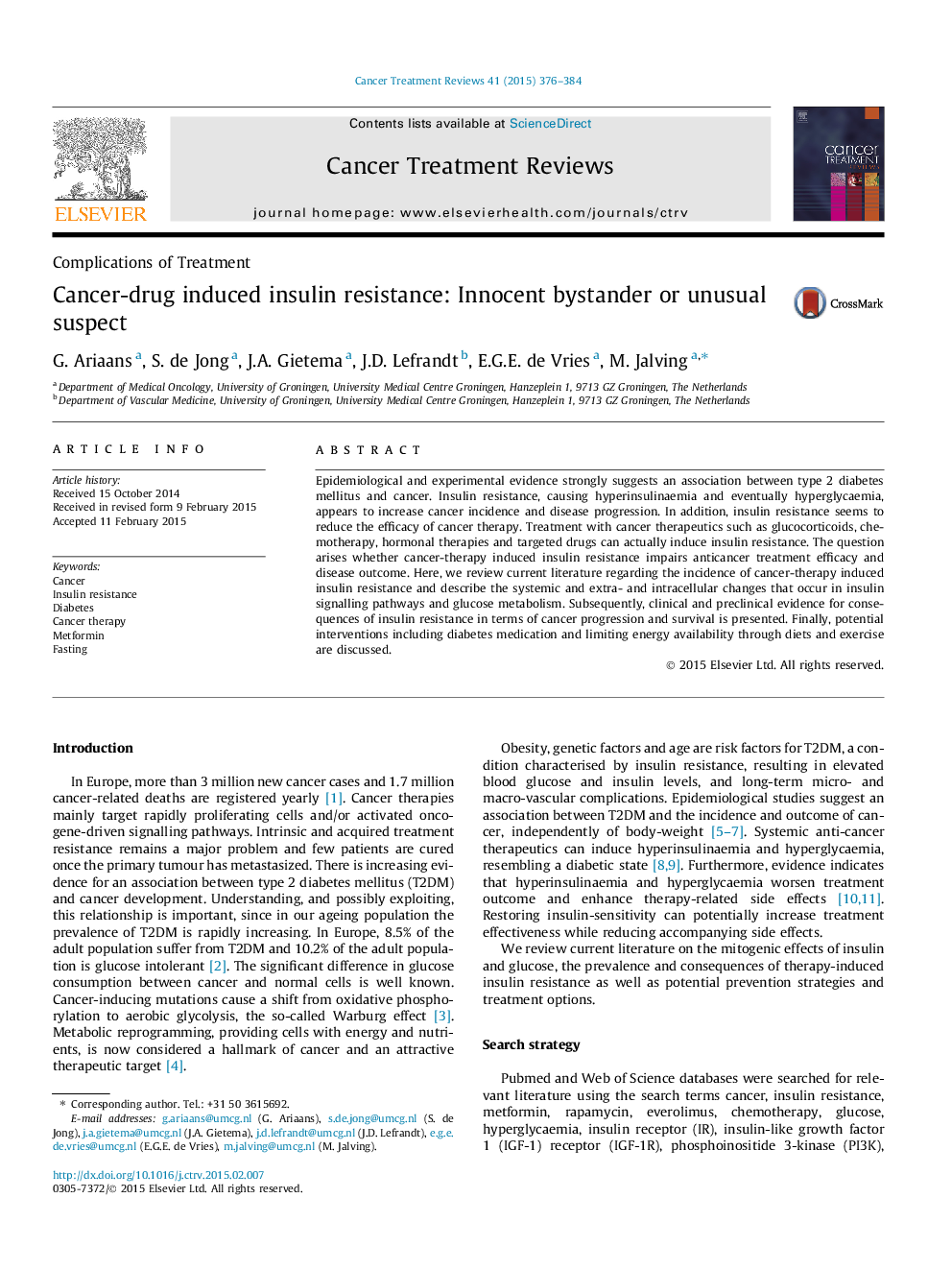| Article ID | Journal | Published Year | Pages | File Type |
|---|---|---|---|---|
| 3979805 | Cancer Treatment Reviews | 2015 | 9 Pages |
•A review of the literature on cancer-drug induced insulin resistance.•Hyperglycaemia and hyperinsulinaemia can promote cancer cell growth.•Common cancer treatments can induce insulin resistance, which promotes cancer progression.•Diabetes drugs, diet and exercise may reduce cancer-drug induced insulin resistance.•Awareness of glucose and insulin levels in cancer patients is needed.
Epidemiological and experimental evidence strongly suggests an association between type 2 diabetes mellitus and cancer. Insulin resistance, causing hyperinsulinaemia and eventually hyperglycaemia, appears to increase cancer incidence and disease progression. In addition, insulin resistance seems to reduce the efficacy of cancer therapy. Treatment with cancer therapeutics such as glucocorticoids, chemotherapy, hormonal therapies and targeted drugs can actually induce insulin resistance. The question arises whether cancer-therapy induced insulin resistance impairs anticancer treatment efficacy and disease outcome. Here, we review current literature regarding the incidence of cancer-therapy induced insulin resistance and describe the systemic and extra- and intracellular changes that occur in insulin signalling pathways and glucose metabolism. Subsequently, clinical and preclinical evidence for consequences of insulin resistance in terms of cancer progression and survival is presented. Finally, potential interventions including diabetes medication and limiting energy availability through diets and exercise are discussed.
